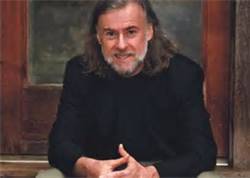I'm always amazed when an unintended theme seems to pop up in a class. And, so far, these early weeks of ENG 360 have included an unintended concern with Emerson and self-reliance. I suppose this is probably as much a theme of David Brooks's (the BAE editor for 2012) and not merely my own, but, nevertheless....
I have to say, first of all, that I really like Emerson--what I teach of him, anyway. In my sections of American Literature: Survey I, I usually assign "The American Scholar" and "Nature." There are problems/issues with each of these, but, as a whole, I find myself drawn to some of the key themes and the most memorable passages. I don't teach "Self-Reliance," and I'm not entirely sure why. But I'm pretty sure, now, that I'll be recalling--and perhaps addressing--some of Anastas's perspectives when Emerson comes up again next spring, particularly since Anastas hits some concerns that I already address--the tension between the American ideals of individual autonomy and opportunity (CF: John Smith), on the one hand, and the still-oft-quoted emphasis on community (CF: John Winthrop) on the other hand.
I was particularly struck by the following passage from Emerson that Anastas quotes: “Most men have bound their eyes with one or another handkerchief and attached themselves to … communities of opinion” (3). I was reminded of another essay—an essay that series editor Robert Atwan quotes in his preface: David Foster Wallace’s “Deciderization2007—a Special Report,” which was the introduction to the Best American Essays: 2007. Wallace asserts that in our current culture we’re surrounded by “Total Noise”:
“[…] a culture and volume of info and spin and rhetoric and context that I know I’m not alone in finding too much to even absorb, much less try to make and sense of or organize into any kind of triage of saliency or value. Such basic absorption, organization, and triage used to be what was required of an educated adult, a.k.a. and informed citizen—at least that’s what I got taught. Suffice it here to say that the requirements now seem different.”
Between the two of these essays, one gets the sense of a
perfect storm; we’re both living in a culture that inundates us with so much
information that we tend to just pick a voice to listen to—a “decider,” in
Wallace’s terms—and living in a cultural tradition, derived from Emerson, that
inclines us to simply embrace our own self-serving worldview and shut out any
voices that might challenge us.
A couple of final notes….
I really enjoyed the snark/humor that Anastas uses in the essay. Also, for those of you enrolled in ENG 360U,
keep this essay in mind when we get around to talking about the rhetorical
analysis essay. Anastas is essentially
doing a bit of rhetorical analysis when he discusses the “Think Different”commercial for Apple in 1997.




